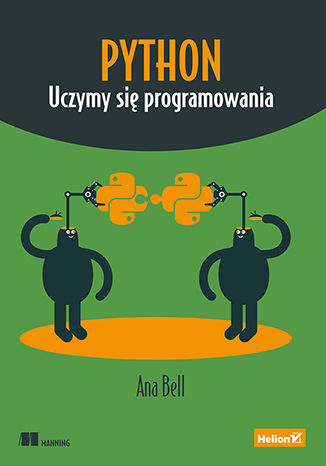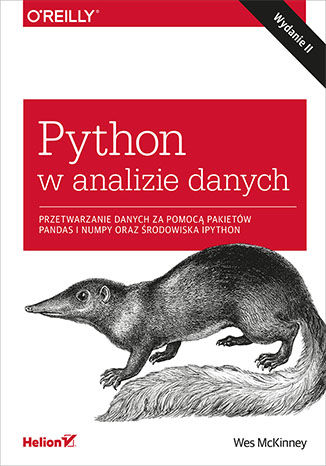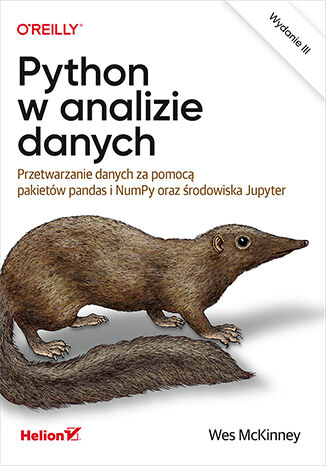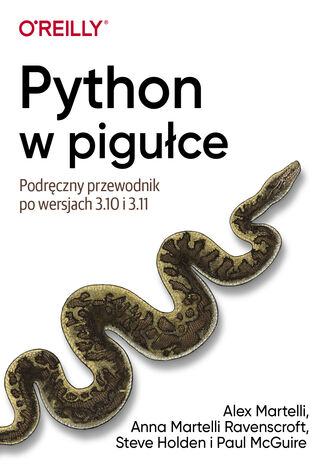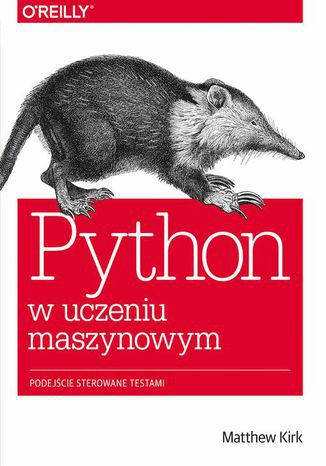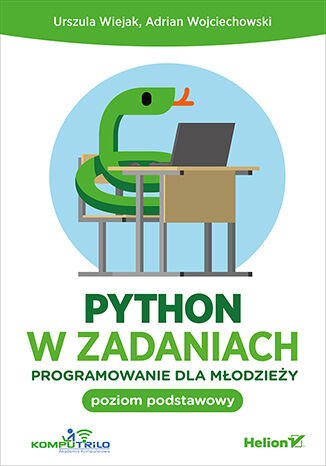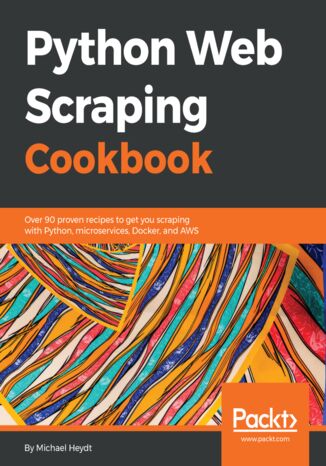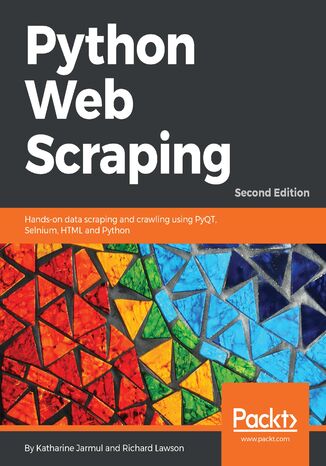Kategorie
Ebooki
-
Biznes i ekonomia
- Bitcoin
- Bizneswoman
- Coaching
- Controlling
- E-biznes
- Ekonomia
- Finanse
- Giełda i inwestycje
- Kompetencje osobiste
- Komputer w biurze
- Komunikacja i negocjacje
- Mała firma
- Marketing
- Motywacja
- Multimedialne szkolenia
- Nieruchomości
- Perswazja i NLP
- Podatki
- Polityka społeczna
- Poradniki
- Prezentacje
- Przywództwo
- Public Relation
- Raporty, analizy
- Sekret
- Social Media
- Sprzedaż
- Start-up
- Twoja kariera
- Zarządzanie
- Zarządzanie projektami
- Zasoby ludzkie (HR)
-
Dla dzieci
-
Dla młodzieży
-
Edukacja
-
Encyklopedie, słowniki
-
E-prasa
- Architektura i wnętrza
- BHP
- Biznes i Ekonomia
- Dom i ogród
- E-Biznes
- Ekonomia i finanse
- Ezoteryka
- Finanse
- Finanse osobiste
- Firma
- Fotografia
- Informatyka
- Kadry i płace
- Kobieca
- Komputery, Excel
- Księgowość
- Kultura i literatura
- Naukowe i akademickie
- Ochrona środowiska
- Opiniotwórcze
- Oświata
- Podatki
- Podróże
- Psychologia
- Religia
- Rolnictwo
- Rynek książki i prasy
- Transport i Spedycja
- Zdrowie i uroda
-
Historia
-
Informatyka
- Aplikacje biurowe
- Bazy danych
- Bioinformatyka
- Biznes IT
- CAD/CAM
- Digital Lifestyle
- DTP
- Elektronika
- Fotografia cyfrowa
- Grafika komputerowa
- Gry
- Hacking
- Hardware
- IT w ekonomii
- Pakiety naukowe
- Podręczniki szkolne
- Podstawy komputera
- Programowanie
- Programowanie mobilne
- Serwery internetowe
- Sieci komputerowe
- Start-up
- Systemy operacyjne
- Sztuczna inteligencja
- Technologia dla dzieci
- Webmasterstwo
-
Inne
-
Języki obce
-
Kultura i sztuka
-
Lektury szkolne
-
Literatura
- Antologie
- Ballada
- Biografie i autobiografie
- Dla dorosłych
- Dramat
- Dzienniki, pamiętniki, listy
- Epos, epopeja
- Esej
- Fantastyka i science-fiction
- Felietony
- Fikcja
- Humor, satyra
- Inne
- Klasyczna
- Kryminał
- Literatura faktu
- Literatura piękna
- Mity i legendy
- Nobliści
- Nowele
- Obyczajowa
- Okultyzm i magia
- Opowiadania
- Pamiętniki
- Podróże
- Poemat
- Poezja
- Polityka
- Popularnonaukowa
- Powieść
- Powieść historyczna
- Proza
- Przygodowa
- Publicystyka
- Reportaż
- Romans i literatura obyczajowa
- Sensacja
- Thriller, Horror
- Wywiady i wspomnienia
-
Nauki przyrodnicze
-
Nauki społeczne
-
Podręczniki szkolne
-
Popularnonaukowe i akademickie
- Archeologia
- Bibliotekoznawstwo
- Filmoznawstwo
- Filologia
- Filologia polska
- Filozofia
- Finanse i bankowość
- Geografia
- Gospodarka
- Handel. Gospodarka światowa
- Historia i archeologia
- Historia sztuki i architektury
- Kulturoznawstwo
- Lingwistyka
- Literaturoznawstwo
- Logistyka
- Matematyka
- Medycyna
- Nauki humanistyczne
- Pedagogika
- Pomoce naukowe
- Popularnonaukowa
- Pozostałe
- Psychologia
- Socjologia
- Teatrologia
- Teologia
- Teorie i nauki ekonomiczne
- Transport i spedycja
- Wychowanie fizyczne
- Zarządzanie i marketing
-
Poradniki
-
Poradniki do gier
-
Poradniki zawodowe i specjalistyczne
-
Prawo
- BHP
- Historia
- Kodeks drogowy. Prawo jazdy
- Nauki prawne
- Ochrona zdrowia
- Ogólne, kompendium wiedzy
- Podręczniki akademickie
- Pozostałe
- Prawo budowlane i lokalowe
- Prawo cywilne
- Prawo finansowe
- Prawo gospodarcze
- Prawo gospodarcze i handlowe
- Prawo karne
- Prawo karne. Przestępstwa karne. Kryminologia
- Prawo międzynarodowe
- Prawo międzynarodowe i zagraniczne
- Prawo ochrony zdrowia
- Prawo oświatowe
- Prawo podatkowe
- Prawo pracy i ubezpieczeń społecznych
- Prawo publiczne, konstytucyjne i administracyjne
- Prawo rodzinne i opiekuńcze
- Prawo rolne
- Prawo socjalne, prawo pracy
- Prawo Unii Europejskiej
- Przemysł
- Rolne i ochrona środowiska
- Słowniki i encyklopedie
- Zamówienia publiczne
- Zarządzanie
-
Przewodniki i podróże
- Afryka
- Albumy
- Ameryka Południowa
- Ameryka Środkowa i Północna
- Australia, Nowa Zelandia, Oceania
- Austria
- Azja
- Bałkany
- Bliski Wschód
- Bułgaria
- Chiny
- Chorwacja
- Czechy
- Dania
- Egipt
- Estonia
- Europa
- Francja
- Góry
- Grecja
- Hiszpania
- Holandia
- Islandia
- Litwa
- Łotwa
- Mapy, Plany miast, Atlasy
- Miniprzewodniki
- Niemcy
- Norwegia
- Podróże aktywne
- Polska
- Portugalia
- Pozostałe
- Przewodniki po hotelach i restauracjach
- Rosja
- Rumunia
- Słowacja
- Słowenia
- Szwajcaria
- Szwecja
- Świat
- Turcja
- Ukraina
- Węgry
- Wielka Brytania
- Włochy
-
Psychologia
- Filozofie życiowe
- Kompetencje psychospołeczne
- Komunikacja międzyludzka
- Mindfulness
- Ogólne
- Perswazja i NLP
- Psychologia akademicka
- Psychologia duszy i umysłu
- Psychologia pracy
- Relacje i związki
- Rodzicielstwo i psychologia dziecka
- Rozwiązywanie problemów
- Rozwój intelektualny
- Sekret
- Seksualność
- Uwodzenie
- Wygląd i wizerunek
- Życiowe filozofie
-
Religia
-
Sport, fitness, diety
-
Technika i mechanika
Audiobooki
-
Biznes i ekonomia
- Bitcoin
- Bizneswoman
- Coaching
- Controlling
- E-biznes
- Ekonomia
- Finanse
- Giełda i inwestycje
- Kompetencje osobiste
- Komunikacja i negocjacje
- Mała firma
- Marketing
- Motywacja
- Nieruchomości
- Perswazja i NLP
- Podatki
- Polityka społeczna
- Poradniki
- Prezentacje
- Przywództwo
- Public Relation
- Sekret
- Social Media
- Sprzedaż
- Start-up
- Twoja kariera
- Zarządzanie
- Zarządzanie projektami
- Zasoby ludzkie (HR)
-
Dla dzieci
-
Dla młodzieży
-
Edukacja
-
Encyklopedie, słowniki
-
E-prasa
-
Historia
-
Informatyka
-
Inne
-
Języki obce
-
Kultura i sztuka
-
Lektury szkolne
-
Literatura
- Antologie
- Ballada
- Biografie i autobiografie
- Dla dorosłych
- Dramat
- Dzienniki, pamiętniki, listy
- Epos, epopeja
- Esej
- Fantastyka i science-fiction
- Felietony
- Fikcja
- Humor, satyra
- Inne
- Klasyczna
- Kryminał
- Literatura faktu
- Literatura piękna
- Mity i legendy
- Nobliści
- Nowele
- Obyczajowa
- Okultyzm i magia
- Opowiadania
- Pamiętniki
- Podróże
- Poezja
- Polityka
- Popularnonaukowa
- Powieść
- Powieść historyczna
- Proza
- Przygodowa
- Publicystyka
- Reportaż
- Romans i literatura obyczajowa
- Sensacja
- Thriller, Horror
- Wywiady i wspomnienia
-
Nauki przyrodnicze
-
Nauki społeczne
-
Popularnonaukowe i akademickie
-
Poradniki
-
Poradniki zawodowe i specjalistyczne
-
Prawo
-
Przewodniki i podróże
-
Psychologia
- Filozofie życiowe
- Komunikacja międzyludzka
- Mindfulness
- Ogólne
- Perswazja i NLP
- Psychologia akademicka
- Psychologia duszy i umysłu
- Psychologia pracy
- Relacje i związki
- Rodzicielstwo i psychologia dziecka
- Rozwiązywanie problemów
- Rozwój intelektualny
- Sekret
- Seksualność
- Uwodzenie
- Wygląd i wizerunek
- Życiowe filozofie
-
Religia
-
Sport, fitness, diety
-
Technika i mechanika
Kursy video
-
Bazy danych
-
Big Data
-
Biznes, ekonomia i marketing
-
Cyberbezpieczeństwo
-
Data Science
-
DevOps
-
Dla dzieci
-
Elektronika
-
Grafika/Wideo/CAX
-
Gry
-
Microsoft Office
-
Narzędzia programistyczne
-
Programowanie
-
Rozwój osobisty
-
Sieci komputerowe
-
Systemy operacyjne
-
Testowanie oprogramowania
-
Urządzenia mobilne
-
UX/UI
-
Web development
-
Zarządzanie
Podcasty
- Ebooki
- Programowanie
- Python
Python
Python. Uczymy się programowania
Programowanie wielu ludziom kojarzy się z czymś niewiarygodnie skomplikowanym i zarezerwowanym tylko dla profesjonalistów. Tymczasem jest to umiejętność, którą można porównać do pisania, liczenia czy gotowania. Niezależnie od tego, że na świecie istnieją pisarze tworzący bestsellery, światowej sławy matematycy czy mistrzowie kuchni, ich umiejętności można wykorzystywać na co dzień do napisania listu, sprawdzenia domowych wydatków czy ugotowania zdrowego posiłku. Analogicznie każdy może nauczyć się programowania i zacząć pisać kod, który pomoże mu w rozwiązywaniu codziennych, drobnych problemów. Idealnie, jeśli naukę zaczniesz właśnie od Pythona! Dzięki tej książce szybko się przekonasz, że programowanie nie jest wiedzą tajemną, a całkiem praktyczną umiejętnością, która dodatkowo może dać sporo satysfakcji. Znajdziesz tu przystępnie podane podstawy programowania w Pythonie - zamiast rozbudowanej teorii mnóstwo ćwiczeń do samodzielnego wykonania wraz ze szczegółowymi instrukcjami i wskazówkami. Książka składa się z 38 dobrze zaplanowanych lekcji oraz 7 interesujących projektów. Dzięki przejrzystym ilustracjom, ćwiczeniom weryfikującym stopień zrozumienia lekcji oraz wskazówkom co do dalszej pracy wkrótce zaczniesz myśleć jak programista. W efekcie będziesz mógł dalej rozwijać swoje umiejętności z Pythonem lub wybrać jakiś inny język programowania - a może wykorzystasz nowe kompetencje do stworzenia czegoś zupełnie innego? Dzięki tej książce: przygotujesz środowisko pracy i zaprojektujesz strukturę programu zaczniesz posługiwać się instrukcjami, pętlami, zmiennymi, obiektami zrozumiesz, jak działają funkcje przetestujesz i zdebugujesz swój kod nauczysz się korzystać z bibliotek a przede wszystkim zaczniesz myśleć jak programista! Nie musisz być zawodowym programistą, by zabawić się z Pythonem!
Analiza danych stała się samodzielną dyscypliną wiedzy interesującą specjalistów z wielu branż: analityków biznesowych, statystyków, architektów oprogramowania czy też osoby zajmujące się sztuczną inteligencją. Wydobywanie informacji ze zbiorów danych pozwala na uzyskanie wiedzy niedostępnej w inny sposób. W tym celu dane trzeba odpowiednio przygotować, oczyścić, przetworzyć i oczywiście poddać analizie. Warto również zadbać o ich wizualizację. Do tych wszystkich zadań najlepiej wykorzystać specjalne narzędzia opracowane w języku Python. Prezentowana książka jest drugim, zaktualizowanym i uzupełnionym, wydaniem klasycznego podręcznika napisanego z myślą o analitykach, którzy dotychczas nie pracowali w Pythonie, oraz o programistach Pythona, którzy nie zajmowali się dotąd analizą danych ani obliczeniami naukowymi. Przedstawiono tu możliwości oferowane przez Pythona 3.6 oraz najnowsze funkcje pakietów Pandas i NumPy, a także środowisk IPython i Jupyter. Przy opisie poszczególnych narzędzi analitycznych wyjaśniono ich działanie i zaprezentowano przykłady ich wykorzystania w sposób efektywny i kreatywny. Ta książka powinna się znaleźć w podręcznej bibliotece każdego analityka danych! Najważniejsze zagadnienia: Eksploracja danych za pomocą powłoki IPython i środowiska Jupyter Korzystanie z pakietów NumPy i Pandas Tworzenie wizualizacji danych za pomocą pakietu Matplotlib Praca z danymi regularnych i nieregularnych szeregów czasowych Rozwiązywanie rzeczywistych problemów analitycznych Python: poznaj idealne narzędzie do analizy danych!
Wprawny analityk danych potrafi z nich uzyskać wiedzę ułatwiającą podejmowanie trafnych decyzji. Od kilku lat można do tego używać nowoczesnych narzędzi Pythona, które zbudowano specjalnie do tego celu. Praca z nimi nie wymaga głębokiej znajomości statystyki czy algebry. Aby cieszyć się uzyskanymi rezultatami, wystarczy się wprawić w stosowaniu kilku pakietów i środowisk Pythona. Ta książka jest trzecim, starannie zaktualizowanym wydaniem wyczerpującego przewodnika po narzędziach analitycznych Pythona. Uwzględnia Pythona 3.0 i bibliotekę pandas 1.4. Została napisana w przystępny sposób, a poszczególne zagadnienia bogato zilustrowano przykładami, studiami rzeczywistych przypadków i fragmentami kodu. W trakcie lektury nauczysz się korzystać z możliwości oferowanych przez pakiety pandas i NumPy, a także środowiska IPython i Jupyter. Nie zabrakło wskazówek dotyczących używania uniwersalnych narzędzi przeznaczonych do ładowania, czyszczenia, przekształcania i łączenia zbiorów danych. Pozycję docenią analitycy zamierzający zacząć pracę w Pythonie, jak również programiści Pythona, którzy chcą się zająć analizą danych i obliczeniami naukowymi. Dzięki książce nauczysz się: eksplorować dane za pomocą powłoki IPython i środowiska Jupyter korzystać z funkcji pakietów NumPy i pandas używać pakietu matplotlib do tworzenia czytelnych wizualizacji analizować i przetwarzać dane regularnych i nieregularne szeregi czasowe rozwiązywać rzeczywiste problemy analityczne Wes McKinney zaktualizował swoją książkę, aby była podstawowym źródłem informacji o wszystkich zagadnieniach związanych z analizą danych przy użyciu języka Python i biblioteki pandas. Gorąco polecam tę pozycję! Paul Barry, wykładowca i autor książek
Python w pigułce. Podręczny przewodnik po wersjach 3.10 i 3.11
Alex Martelli, Anna Martelli Ravenscroft, Steve Holden, Paul McGuire
Język Python został ostatnio sklasyfikowany w indeksie TIOBE jako najpopularniejszy obecnie język programowania, co zawdzięcza szerokim możliwościom stosowania go w projektowaniu, prototypowaniu, testach, wdrażaniu i konserwacji oprogramowania. To zaktualizowane i rozszerzone czwarte wydanie pokazuje, jak najlepiej używać Pythona, niezależnie od tego, czy jesteś profesjonalnym programistą, czy też chcesz użyć tego języka do rozwiązywania problemów w konkretnej dziedzinie. Nowe wydanie, starannie przygotowane przez uznawanych ekspertów dziedzinowych, skupia się na wersji 3.10, zapewniając pełną aktualność tej kluczowej pozycji dla pięciu ostatnich wersji języka, od 3.7 po niedawno wydaną wersję 3.11. Ten podręczny przewodnik pozwoli ci: - Nauczyć się tego, jak Python reprezentuje dane i sam program jako obiekty - Zrozumieć przydatnośc i zastosowania adnotacji typów - Dowiedzieć się, które funkcje języka pojawiły się w niedawnych wersjach i w której - Opanować idiomatyczne posługiwanie się nowoczesnym Pythonem - Poznać sposoby właściwego strukturyzowania projektów w Pythonie - Nauczyć się testować, debugować i optymalizować kod Pythona "Pogłębiony, zaktualizowany, przejrzysty i użyteczny opis języka Python. Doskonałe kompendium z wieloma spostrzeżeniami i poradami, które zaspokoi każdego, od średniozaawansowanych po ekspertów". -Mark Summerfield Dyrektor Qtrac Ltd. Cała czwórka autorów to członkowie Python Software Foundations, zaś troje z nich to zdobywcy Frank Willison Memorial Award. Są powszechnie uznawani za swój wkład w Pythona i jego społeczność. Ich łączne doświadczenie obejmuje najrozmaitsze środowiska i platformy, od akademickich, poprzez startupy, aż po międzynarodowe korporacje i instytucje rządowe. Wspólnie opracowali autorytatywny podręcznik składni i funkcjonalności języka Python, biblioteki standardowej oraz wybranych innych pakietów.
Ten praktyczny przewodnik pozwoli osiągnąć biegłość w stosowaniu uczenia maszynowego w codziennej pracy. Autor, Matthew Kirk, bez akademickich rozważań pokazuje, jak integrować i testować algorytmy uczenia maszynowego w swoim kodzie. Książka przedstawia wykorzystanie testów z użyciem bibliotek naukowych NumPy, Pandas, Scikit-Learn oraz SciPy dla języka Python, ilustrując je licznymi wykresami oraz przykładami kodu. Książka ta pomoże programistom i analitykom biznesowym zainteresowanym badaniem danych w: Zapoznaniu się z rzeczywistymi przykładami testowania poszczególnych algorytmów poprzez zajmujące ćwiczenia praktyczne. Stosowaniu programowania sterowanego testami do pisania i uruchamiania testów przed rozpoczęciem kodowania. Badaniu technik poprawiających nasze modele uczenia maszynowego poprzez wydobywanie danych i opracowywanie funkcjonalności. Zwracaniu uwagi na ryzyka związane z uczeniem maszynowym takie jak niedopasowanie danych. Pracy z algorytmem K najbliższych sąsiadów, sieciami neuronowymi, klastrami i innymi technikami. Matthew Kirk jest konsultantem, autorem i międzynarodowym prelegentem, specjalizującym się w uczeniu maszynowym i analizie danych z wykorzystaniem języków Ruby i Python. Mieszka w Seattle i lubi pomagać innym programistom w integrowaniu analizy danych ze stosowanymi przez nich technologiami. Więcej zasobów dotyczących uczenia maszynowego można znaleźć pod adresem www.matthewkirk.com.
Python w zadaniach. Programowanie dla młodzieży. Poziom podstawowy
Urszula Wiejak, Adrian Wojciechowski
Opanuj Pythona od strony praktycznej! Poznaj konstrukcje języka Python Naucz się stosować je w praktyce Wykorzystaj standardowe biblioteki Rozwiąż 139 zadań i sprawdź swoje rozwiązania Python to bardzo popularny, wydajny i elastyczny język programowania ogólnego przeznaczenia, którego prosta, czytelna i zwięzła składnia zdobyła uznanie rzesz programistów na całym świecie. Duże możliwości, przenośność kodu, możliwość pisania skryptów - wszystko to sprawia, że Python znajduje zastosowanie w najróżniejszych dziedzinach i wspiera rozwój wielu popularnych serwisów internetowych. Bez wątpienia warto się go nauczyć! Jeśli chcesz poznać ten język, jesteś na dobrej drodze! Książka omawia najważniejsze elementy programowania w Pythonie. Co ważne, wiedza została usystematyzowana w formie konkretnych zadań do wykonania. Poznasz dzięki nim typy danych i składnię języka, dowiesz się, jak debugować programy, nauczysz się korzystać z funkcji oferowanych przez biblioteki i opanujesz podstawy tworzenia graficznych interfejsów użytkownika. To podręcznik przeznaczony dla młodzieży, ale doskonale sprawdzi się również w przypadku osób dorosłych, które rozpoczynają przygodę z programowaniem. Instalowanie oraz konfigurowanie środowiska i niezbędnych narzędzi Podstawowe informacje na temat języka i programowania Typy danych, zmienne proste i tablicowe Operatory, instrukcje warunkowe oraz instrukcje pętli Operacje wejścia-wyjścia w konsoli i na plikach Biblioteki graficzne, dźwiękowe i wideo Korzystanie z funkcji wbudowanych i tworzenie własnych Programowanie obiektowe, obsługa wątków i wyjątków Tworzenie graficznych interfejsów użytkownika Zadania do samodzielnego wykonania i praktyczny projekt gry Poznaj Pythona, rozwiązuj zadania, zostań programistą!
Python Web Scraping Cookbook is a solution-focused book that will teach you techniques to develop high-performance scrapers and deal with crawlers, sitemaps, forms automation, Ajax-based sites, caches, and more. You'll explore a number of real-world scenarios where every part of the development/product life cycle will be fully covered. You will not only develop the skills needed to design and develop reliable performance data flows, but also deploy your codebase to AWS. If you are involved in software engineering, product development, or data mining (or are interested in building data-driven products), you will find this book useful as each recipe has a clear purpose and objective. Right from extracting data from the websites to writing a sophisticated web crawler, the book's independent recipes will be a godsend. This book covers Python libraries, requests, and BeautifulSoup. You will learn about crawling, web spidering, working with Ajax websites, paginated items, and more. You will also learn to tackle problems such as 403 errors, working with proxy, scraping images, and LXML.By the end of this book, you will be able to scrape websites more efficiently and able todeploy and operate your scraper in the cloud.
The Internet contains the most useful set of data ever assembled, most of which is publicly accessible for free. However, this data is not easily usable. It is embedded within the structure and style of websites and needs to be carefully extracted. Web scraping is becoming increasingly useful as a means to gather and make sense of the wealth of information available online.This book is the ultimate guide to using the latest features of Python 3.x to scrape data from websites. In the early chapters, you'll see how to extract data from static web pages. You'll learn to use caching with databases and files to save time and manage the load on servers. Aftercovering the basics, you'll get hands-on practice building a more sophisticated crawler using browsers, crawlers, and concurrent scrapers.You'll determine when and how to scrape data from a JavaScript-dependent website using PyQt and Selenium. You'll get a better understanding of how to submit forms on complex websites protected by CAPTCHA. You'll find out how to automate these actions with Python packages such as mechanize. You'll also learn how to create class-based scrapers with Scrapy libraries and implement your learning on real websites.By the end of the book, you will have explored testing websites with scrapers, remote scraping, best practices, working with images, and many other relevant topics.

